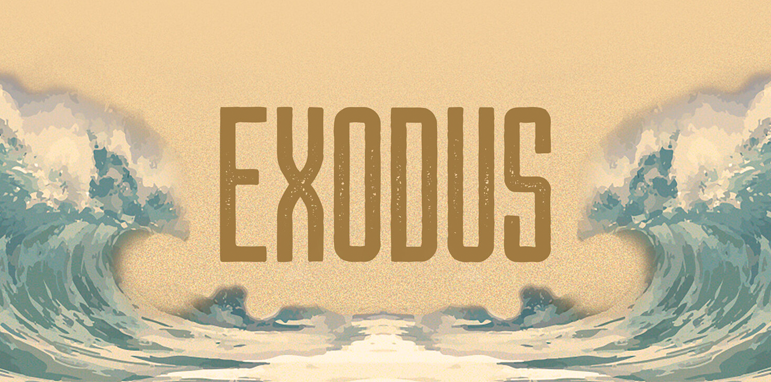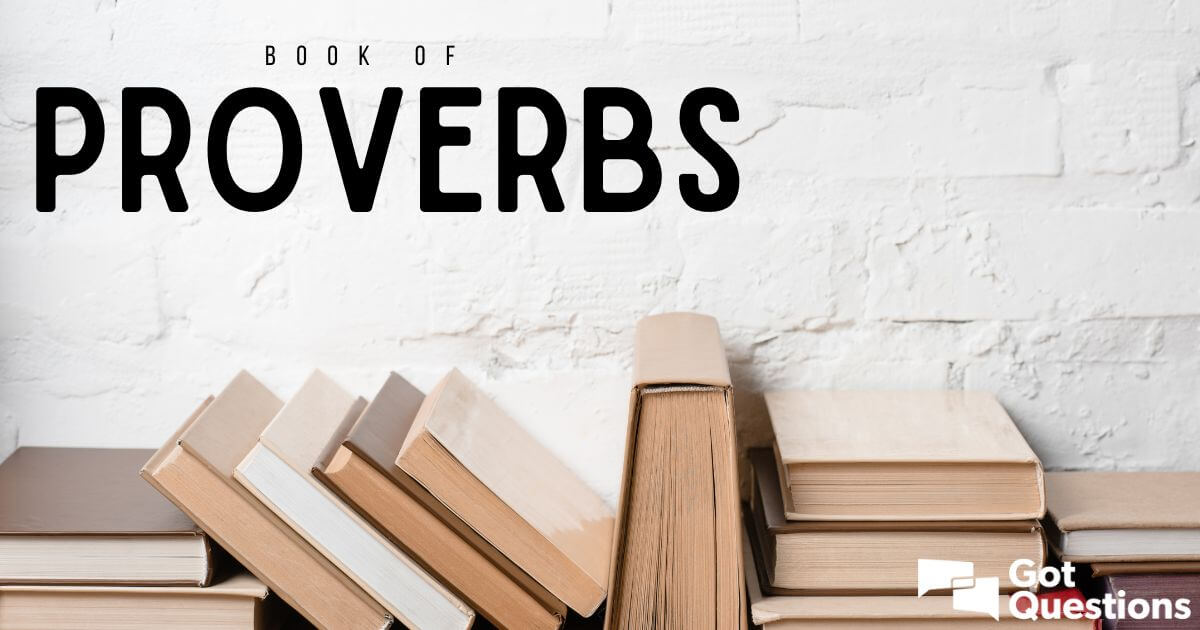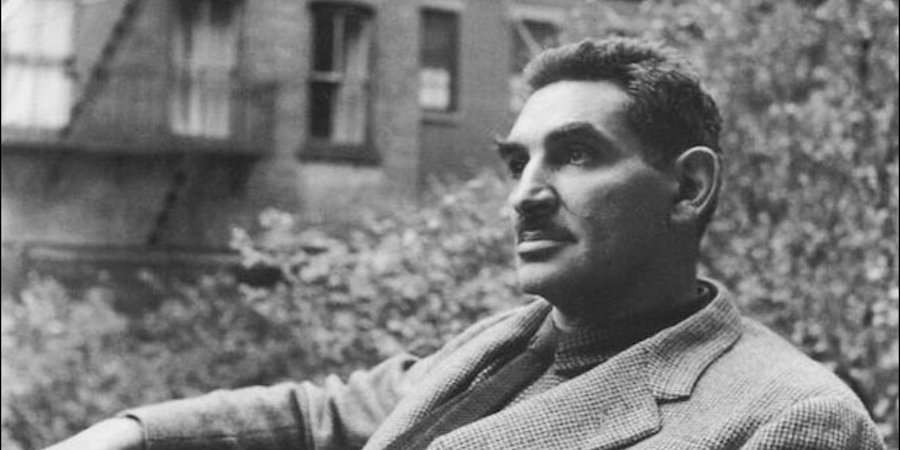Let's read the Bible together in the next year. Today, our passages are Exodus 15:19–17:7; Matthew 22:1-33; Psalm 27:1-6; and Proverbs 6:20-26. The readings are from The Message by Eugene H. Peterson.
Exodus 15:19-17:7 (The Message)
19 Yes, Pharaoh's horses and chariots and riders went into the sea and God turned the waters back on them; but the Israelites walked on dry land right through the middle of the sea.
20-21 Miriam the prophetess, Aaron's sister, took a tambourine, and all the women followed her with tambourines, dancing. Miriam led them in singing,
Sing to God—
what a victory!
He pitched horse and rider
into the sea!
Traveling Through the Wilderness
22-24 Moses led Israel from the Red Sea on to the Wilderness of Shur. They traveled for three days through the wilderness without finding any water. They got to Marah, but they couldn't drink the water at Marah; it was bitter. That's why they called the place Marah (Bitter). And the people complained to Moses, "So what are we supposed to drink?" 25So Moses cried out in prayer to God. God pointed him to a stick of wood. Moses threw it into the water and the water turned sweet.
26 That's the place where God set up rules and procedures; that's where he started testing them.
God said, "If you listen, listen obediently to how God tells you to live in his presence, obeying his commandments and keeping all his laws, then I won't strike you with all the diseases that I inflicted on the Egyptians; I am God your healer."
27 They came to Elim where there were twelve springs of water and seventy palm trees. They set up camp there by the water.
Exodus 16
1-3 On the fifteenth day of the second month after they had left Egypt, the whole company of Israel moved on from Elim to the Wilderness of Sin which is between Elim and Sinai. The whole company of Israel complained against Moses and Aaron there in the wilderness. The Israelites said, "Why didn't God let us die in comfort in Egypt where we had lamb stew and all the bread we could eat? You've brought us out into this wilderness to starve us to death, the whole company of Israel!" 4-5 God said to Moses, "I'm going to rain bread down from the skies for you. The people will go out and gather each day's ration. I'm going to test them to see if they'll live according to my Teaching or not. On the sixth day, when they prepare what they have gathered, it will turn out to be twice as much as their daily ration."
6-7 Moses and Aaron told the People of Israel, "This evening you will know that it is God who brought you out of Egypt; and in the morning you will see the Glory of God. Yes, he's listened to your complaints against him. You haven't been complaining against us, you know, but against God."
8 Moses said, "Since it will be God who gives you meat for your meal in the evening and your fill of bread in the morning, it's God who will have listened to your complaints against him. Who are we in all this? You haven't been complaining to us—you've been complaining to God!"
9 Moses instructed Aaron: "Tell the whole company of Israel: 'Come near to God. He's heard your complaints.'"
10 When Aaron gave out the instructions to the whole company of Israel, they turned to face the wilderness. And there it was: the Glory of God visible in the Cloud.
11-12 God spoke to Moses, "I've listened to the complaints of the Israelites. Now tell them: 'At dusk you will eat meat and at dawn you'll eat your fill of bread; and you'll realize that I am God, your God.'"
13-15 That evening quail flew in and covered the camp and in the morning there was a layer of dew all over the camp. When the layer of dew had lifted, there on the wilderness ground was a fine flaky something, fine as frost on the ground. The Israelites took one look and said to one another, man-hu (What is it?). They had no idea what it was.
15-16 So Moses told them, "It's the bread God has given you to eat. And these are God's instructions: 'Gather enough for each person, about two quarts per person; gather enough for everyone in your tent.'"
17-18 The People of Israel went to work and started gathering, some more, some less, but when they measured out what they had gathered, those who gathered more had no extra and those who gathered less weren't short—each person had gathered as much as was needed.
19 Moses said to them, "Don't leave any of it until morning."
20 But they didn't listen to Moses. A few of the men kept back some of it until morning. It got wormy and smelled bad. And Moses lost his temper with them.
21-22 They gathered it every morning, each person according to need. Then the sun heated up and it melted. On the sixth day they gathered twice as much bread, about four quarts per person.
Then the leaders of the company came to Moses and reported.
23-24 Moses said, "This is what God was talking about: Tomorrow is a day of rest, a holy Sabbath to God. Whatever you plan to bake, bake today; and whatever you plan to boil, boil today. Then set aside the leftovers until morning." They set aside what was left until morning, as Moses had commanded. It didn't smell bad and there were no worms in it.
25-26 Moses said, "Now eat it; this is the day, a Sabbath for God. You won't find any of it on the ground today. Gather it every day for six days, but the seventh day is Sabbath; there won't be any of it on the ground."
27 On the seventh day, some of the people went out to gather anyway but they didn't find anything.
28-29 God said to Moses, "How long are you going to disobey my commands and not follow my instructions? Don't you see that God has given you the Sabbath? So on the sixth day he gives you bread for two days. So, each of you, stay home. Don't leave home on the seventh day."
30 So the people quit working on the seventh day.
31 The Israelites named it manna (What is it?). It looked like coriander seed, whitish. And it tasted like a cracker with honey.
32 Moses said, "This is God's command: 'Keep a two-quart jar of it, an omer, for future generations so they can see the bread that I fed you in the wilderness after I brought you out of Egypt.'"
33 Moses told Aaron, "Take a jar and fill it with two quarts of manna. Place it before God, keeping it safe for future generations."
34 Aaron did what God commanded Moses. He set it aside before The Testimony to preserve it.
35 The Israelites ate the manna for forty years until they arrived at the land where they would settle down. They ate manna until they reached the border into Canaan.
36 According to ancient measurements, an omer is one-tenth of an ephah.
Exodus 17
1-2 Directed by God, the whole company of Israel moved on by stages from the Wilderness of Sin. They set camp at Rephidim. And there wasn't a drop of water for the people to drink. The people took Moses to task: "Give us water to drink." But Moses said, "Why pester me? Why are you testing God?" 3 But the people were thirsty for water there. They complained to Moses, "Why did you take us from Egypt and drag us out here with our children and animals to die of thirst?"
4 Moses cried out in prayer to God, "What can I do with these people? Any minute now they'll kill me!"
5-6 God said to Moses, "Go on out ahead of the people, taking with you some of the elders of Israel. Take the staff you used to strike the Nile. And go. I'm going to be present before you there on the rock at Horeb. You are to strike the rock. Water will gush out of it and the people will drink."
6-7 Moses did what he said, with the elders of Israel right there watching. He named the place Massah (Testing-Place) and Meribah (Quarreling) because of the quarreling of the Israelites and because of their testing of God when they said, "Is God here with us, or not?"
Matthew 22:1-33 (The Message)
Matthew 22
The Story of the Wedding Banquet
1-3 Jesus responded by telling still more stories. "God's kingdom," he said, "is like a king who threw a wedding banquet for his son. He sent out servants to call in all the invited guests. And they wouldn't come!
4"He sent out another round of servants, instructing them to tell the guests, 'Look, everything is on the table, the prime rib is ready for carving. Come to the feast!'
5-7"They only shrugged their shoulders and went off, one to weed his garden, another to work in his shop. The rest, with nothing better to do, beat up on the messengers and then killed them. The king was outraged and sent his soldiers to destroy those thugs and level their city.
8-10"Then he told his servants, 'We have a wedding banquet all prepared but no guests. The ones I invited weren't up to it. Go out into the busiest intersections in town and invite anyone you find to the banquet.' The servants went out on the streets and rounded up everyone they laid eyes on, good and bad, regardless. And so the banquet was on—every place filled.
11-13"When the king entered and looked over the scene, he spotted a man who wasn't properly dressed. He said to him, 'Friend, how dare you come in here looking like that!' The man was speechless. Then the king told his servants, 'Get him out of here—fast. Tie him up and ship him to hell. And make sure he doesn't get back in.'
14"That's what I mean when I say, 'Many get invited; only a few make it.'"
Paying Taxes
15-17That's when the Pharisees plotted a way to trap him into saying something damaging. They sent their disciples, with a few of Herod's followers mixed in, to ask, "Teacher, we know you have integrity, teach the way of God accurately, are indifferent to popular opinion, and don't pander to your students. So tell us honestly: Is it right to pay taxes to Caesar or not?"
18-19Jesus knew they were up to no good. He said, "Why are you playing these games with me? Why are you trying to trap me? Do you have a coin? Let me see it." They handed him a silver piece.
20"This engraving—who does it look like? And whose name is on it?"
21They said, "Caesar."
"Then give Caesar what is his, and give God what is his."
22The Pharisees were speechless. They went off shaking their heads.
Marriage and Resurrection
23-28That same day, Sadducees approached him. This is the party that denies any possibility of resurrection. They asked, "Teacher, Moses said that if a man dies childless, his brother is obligated to marry his widow and get her with child. Here's a case where there were seven brothers. The first brother married and died, leaving no child, and his wife passed to his brother. The second brother also left her childless, then the third—and on and on, all seven. Eventually the wife died. Now here's our question: At the resurrection, whose wife is she? She was a wife to each of them."
29-33Jesus answered, "You're off base on two counts: You don't know your Bibles, and you don't know how God works. At the resurrection we're beyond marriage. As with the angels, all our ecstasies and intimacies then will be with God. And regarding your speculation on whether the dead are raised or not, don't you read your Bibles? The grammar is clear: God says, 'I am—not was—the God of Abraham, the God of Isaac, the God of Jacob.' The living God defines himself not as the God of dead men, but of the living." Hearing this exchange the crowd was much impressed.
Psalm 27:1-6 (The Message)
Psalm 27
A David Psalm
1 Light, space, zest— that's God!
So, with him on my side I'm fearless,
afraid of no one and nothing.
2 When vandal hordes ride down
ready to eat me alive,
Those bullies and toughs
fall flat on their faces.
3 When besieged,
I'm calm as a baby.
When all hell breaks loose,
I'm collected and cool.
4 I'm asking God for one thing,
only one thing:
To live with him in his house
my whole life long.
I'll contemplate his beauty;
I'll study at his feet.
5 That's the only quiet, secure place
in a noisy world,
The perfect getaway,
far from the buzz of traffic.
6 God holds me head and shoulders
above all who try to pull me down.
I'm headed for his place to offer anthems
that will raise the roof!
Already I'm singing God-songs;
I'm making music to God.
Proverbs 6:20-26 (The Message)
Warning on Adultery
20-23 Good friend, follow your father's good advice;
don't wander off from your mother's teachings.
Wrap yourself in them from head to foot;
wear them like a scarf around your neck.
Wherever you walk, they'll guide you;
whenever you rest, they'll guard you;
when you wake up, they'll tell you what's next.
For sound advice is a beacon,
good teaching is a light,
moral discipline is a life path.
24-35 They'll protect you from wanton women,
from the seductive talk of some temptress.
Don't lustfully fantasize on her beauty,
nor be taken in by her bedroom eyes.
You can buy an hour with a whore for a loaf of bread,
but a wanton woman may well eat you alive.
Can you build a fire in your lap
and not burn your pants?
Can you walk barefoot on hot coals
and not get blisters?
It's the same when you have sex with your neighbor's wife:
Touch her and you'll pay for it. No excuses.
Hunger is no excuse
for a thief to steal;
When he's caught he has to pay it back,
even if he has to put his whole house in hock.
Adultery is a brainless act,
soul-destroying, self-destructive;
Expect a bloody nose, a black eye,
and a reputation ruined for good.
For jealousy detonates rage in a cheated husband;
wild for revenge, he won't make allowances.
Nothing you say or pay will make it all right;
neither bribes nor reason will satisfy him.
American writer, educator, philosopher and art critic, Harold Rosenberg wrote, "The purpose of education is to keep a culture from being drowned in senseless repetitions, each of which claims to offer a new insight."
American writer, educator, philosopher and art critic, Harold Rosenberg wrote, "The purpose of education is to keep a culture from being drowned in senseless repetitions, each of which claims to offer a new insight."







